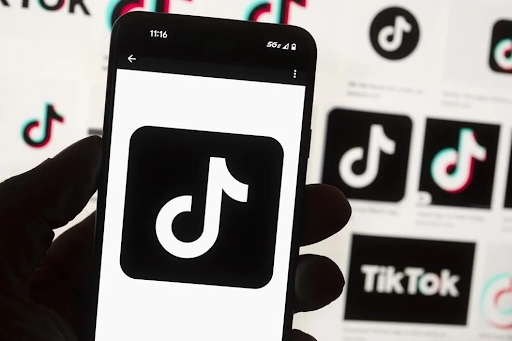
The TikTok logo is displayed on a mobile phone in front of a computer screen, Oct. 14, 2022, in Boston. TikTok will begin labeling content created using artificial intelligence when it's uploaded from certain platforms. TikTok says its efforts are an attempt to combat misinformation from being spread on its social media platform. The announcement came on ABC's “Good Morning America” on Thursday, May 9, 2024.
TikTok plans to mark content produced through artificial intelligence when uploaded from sources outside its platform. This initiative aims to counter misinformation on the social media platform. The company highlights the need for clarity regarding AI-generated content to prevent confusion among viewers. This labeling approach extends to content utilizing TikTok's AI effects, with creators required to identify realistic AI-generated content for over a year.
The decision aligns with broader efforts in the tech industry to regulate AI usage. Meta's February announcement outlined collaborations to develop standards facilitating the identification of AI-generated media across platforms like Facebook and Instagram. Google previously announced plans to introduce AI labels on YouTube and other platforms. This push for digital watermarking and labeling of AI-generated content was also supported by an executive order signed by U.S. President Joe Biden in October.
TikTok collaborates with the Coalition for Content Provenance and Authenticity, integrating their Content Credentials technology. This technology attaches metadata to content, facilitating instant recognition and labeling of AI-generated content. Initially implemented for images and videos, it will soon extend to audio-only content. Content Credentials will be embedded in TikTok content, aiding in identifying AI-generated content and providing insights into its creation or editing process. Platforms adopting Content Credentials can automate labeling.
TikTok claims to be the first video-sharing platform implementing Content Credentials, joining Adobe's Content Authenticity Initiative to promote industry-wide adoption. Dana Rao, Adobe's executive vice president, acknowledges TikTok's role in enhancing online transparency due to its vast user base.
Previously, TikTok encouraged users to label AI-generated or heavily edited content. The platform mandates labeling for content featuring realistic AI-generated images, audio, or video. Adam Presser, TikTok's Head of Operations & Trust and Safety, emphasizes user excitement about AI's creative potential while prioritizing transparency.
The announcement was initially made on ABC's "Good Morning America." This move coincides with TikTok's legal challenge against a U.S. law threatening its operations. The lawsuit, filed by TikTok and its parent company, ByteDance, challenges a law potentially banning the app unless sold to an approved buyer. TikTok views the law as an unjust infringement on free speech, setting the stage for a legal battle that could reach the Supreme Court and potentially lead to its shutdown next year.















